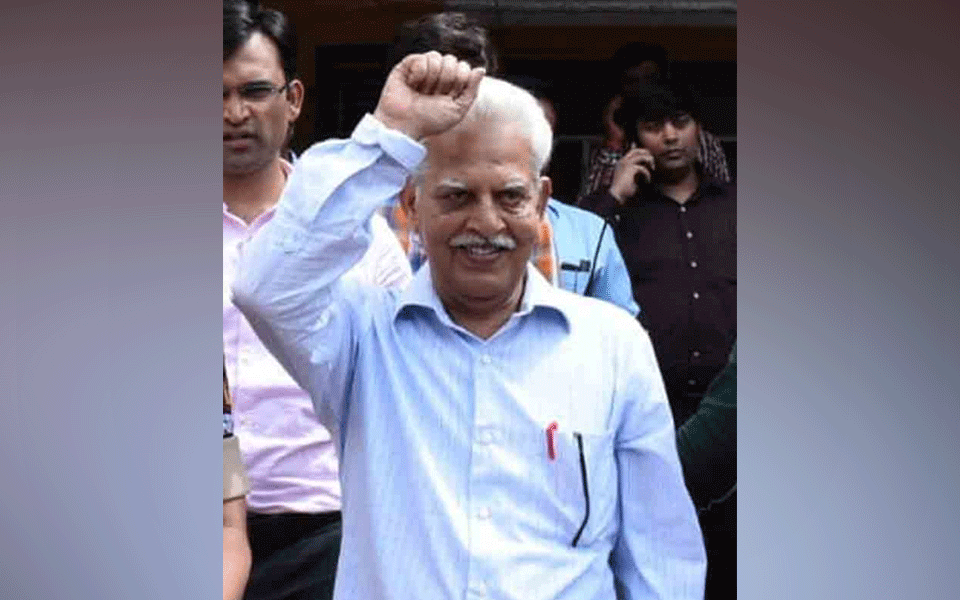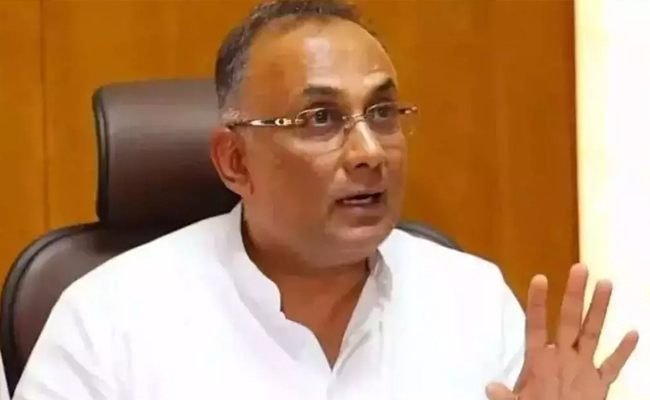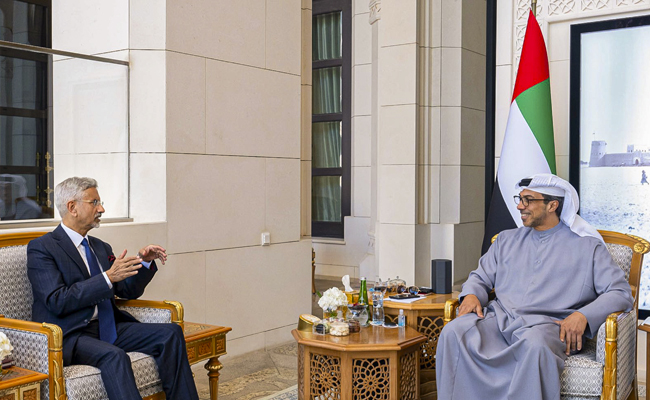Hyderabad, Aug 28 : The Maharashtra Police on Tuesday arrested Maoist ideologue Varavara Rao here, with a family member quoting the detectives as saying that he was linked with an alleged plot to assassinate Prime Minister Narendra Modi.
A police team from Pune arrested the revolutionary writer after searching his house for nearly eight hours. He was produced before a court, which directed the police to produce him in a court in Pune by 5 p.m on Wednesday.
Earlier, the police conducted simultaneous searches at Rao's house and houses of his two daughters, other relatives and friends including two journalists.
Mild tension prevailed at Rao's house in Gandhinagar as his supporters gathered outside raising slogans against the police. The local police cordoned off the area.
The Maharashtra Police seized some documents from Rao's house, while a laptop, hard disk and other material were seized during searches at his relatives' residences.
Rao's wife Hemalatha told reporters that the police told him that he was being arrested in connection with a case relating to the plot to kill the Prime Minister.
She said about 20 policemen reached the house early in the morning and began the search without any warrant.
"They searched every room and every corner. When he asked them to show the arrest warrant, they said no warrant is required," she said.
According to her, the revolutionary writer told the police that it was a fake case.
In June, the police in Pune had registered a case after a letter mentioning assassination plot was recovered from one of the five persons arrested in connection with the Bhima Koregaon violence.
The letter written by a person identified only as 'R' reportedly mentions a plot to kill Modi on the lines of former Prime Minister Rajiv Gandhi.
It also referred to requirement of Rs 8 crore to purchase a M-4 rifle and four lakh rounds to execute the plot. The letter reportedly mentions Varavara Rao's name as the one who will arrange the funds.
The letter addressed to a Maoist leader Prakash was recovered from rights activist Rona Jacob Wilson, when he was arrested in Delhi.
Varavara Rao, who heads "Veerasam" - an association of revolutionary writers - had strongly denied the allegations. He had termed it as an attempt by the central government to check the falling popularity graph of Narendra Modi.
His wife said he was arrested in 20 to 30 cases since 1974 but was not convicted even in one. She said it was the first time that police entered their house and searched every room.
Let the Truth be known. If you read VB and like VB, please be a VB Supporter and Help us deliver the Truth to one and all.
New Delhi: A bill to set up a 13-member body to regulate institutions of higher education was introduced in the Lok Sabha on Monday.
Union Education Minister Dharmendra Pradhan introduced the Viksit Bharat Shiksha Adhishthan Bill, which seeks to establish an overarching higher education commission along with three councils for regulation, accreditation, and ensuring academic standards for universities and higher education institutions in India.
Meanwhile, the move drew strong opposition, with members warning that it could weaken institutional autonomy and result in excessive centralisation of higher education in India.
The Viksit Bharat Shiksha Adhishthan Bill, 2025, earlier known as the Higher Education Council of India (HECI) Bill, has been introduced in line with the National Education Policy (NEP) 2020.
The proposed legislation seeks to merge three existing regulatory bodies, the University Grants Commission (UGC), the All India Council for Technical Education (AICTE), and the National Council for Teacher Education (NCTE), into a single unified body called the Viksit Bharat Shiksha Adhishthan.
At present, the UGC regulates non-technical higher education institutions, the AICTE oversees technical education, and the NCTE governs teacher education in India.
Under the proposed framework, the new commission will function through three separate councils responsible for regulation, accreditation, and the maintenance of academic standards across universities and higher education institutions in the country.
According to the Bill, the present challenges faced by higher educational institutions due to the multiplicity of regulators having non-harmonised regulatory approval protocols will be done away with.
The higher education commission, which will be headed by a chairperson appointed by the President of India, will cover all central universities and colleges under it, institutes of national importance functioning under the administrative purview of the Ministry of Education, including IITs, NITs, IISc, IISERs, IIMs, and IIITs.
At present, IITs and IIMs are not regulated by the University Grants Commission (UGC).
Government to refer bill to JPC; Oppn slams it
The government has expressed its willingness to refer it to a joint committee after several members of the Lok Sabha expressed strong opposition to the Bill, stating that they were not given time to study its provisions.
Responding to the opposition, Parliamentary Affairs Minister Kiren Rijiju said the government intends to refer the Bill to a Joint Parliamentary Committee (JPC) for detailed examination.
Congress Lok Sabha MP Manish Tewari warned that the Bill could result in “excessive centralisation” of higher education. He argued that the proposed law violates the constitutional division of legislative powers between the Union and the states.
According to him, the Bill goes beyond setting academic standards and intrudes into areas such as administration, affiliation, and the establishment and closure of university campuses. These matters, he said, fall under Entry 25 of the Concurrent List and Entry 32 of the State List, which cover the incorporation and regulation of state universities.
Tewari further stated that the Bill suffers from “excessive delegation of legislative power” to the proposed commission. He pointed out that crucial aspects such as accreditation frameworks, degree-granting powers, penalties, institutional autonomy, and even the supersession of institutions are left to be decided through rules, regulations, and executive directions. He argued that this amounts to a violation of established constitutional principles governing delegated legislation.
Under the Bill, the regulatory council will have the power to impose heavy penalties on higher education institutions for violating provisions of the Act or related rules. Penalties range from ₹10 lakh to ₹75 lakh for repeated violations, while establishing an institution without approval from the commission or the state government could attract a fine of up to ₹2 crore.
Concerns were also raised by members from southern states over the Hindi nomenclature of the Bill. N.K. Premachandran, an MP from the Revolutionary Socialist Party representing Kollam in Kerala, said even the name of the Bill was difficult to pronounce.
He pointed out that under Article 348 of the Constitution, the text of any Bill introduced in Parliament must be in English unless Parliament decides otherwise.
DMK MP T.M. Selvaganapathy also criticised the government for naming laws and schemes only in Hindi. He said the Constitution clearly mandates that the nomenclature of a Bill should be in English so that citizens across the country can understand its intent.
Congress MP S. Jothimani from Tamil Nadu’s Karur constituency described the Bill as another attempt to impose Hindi and termed it “an attack on federalism.”



_vb_22.jpeg)

